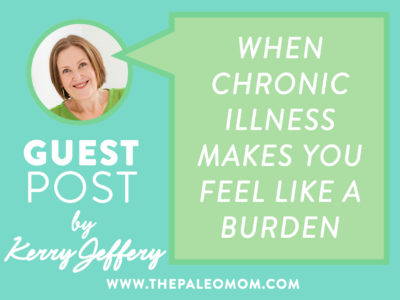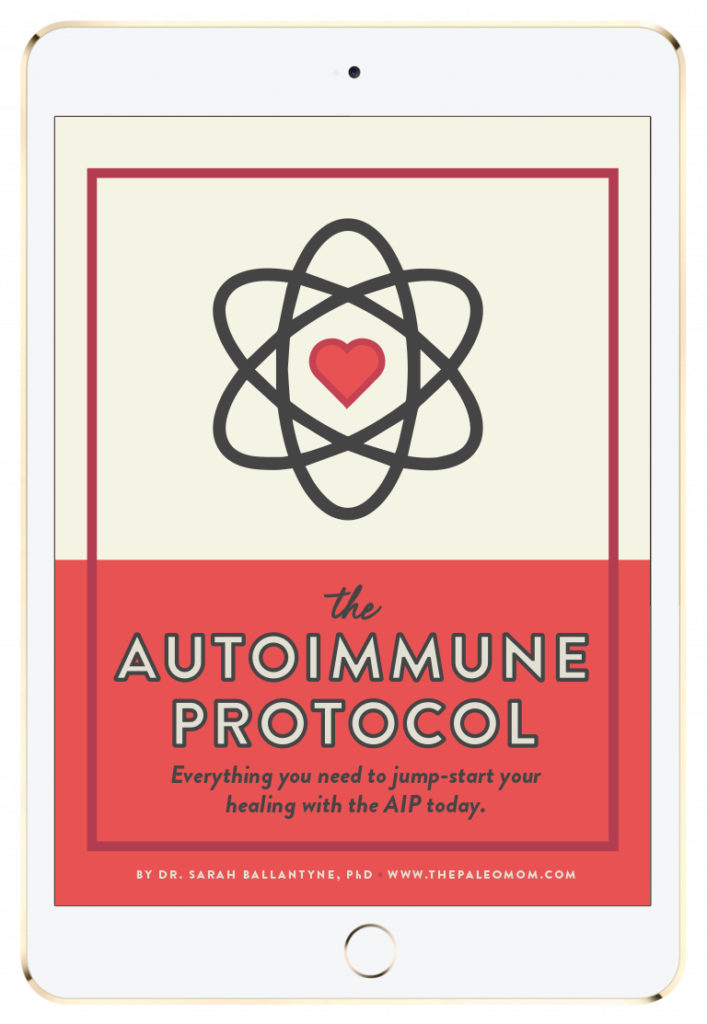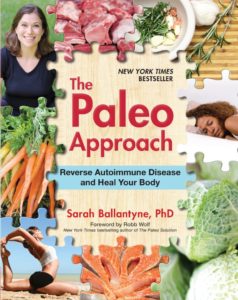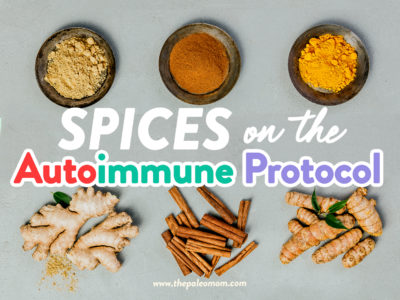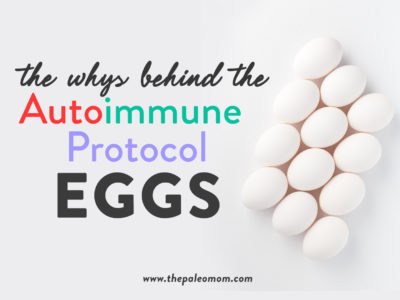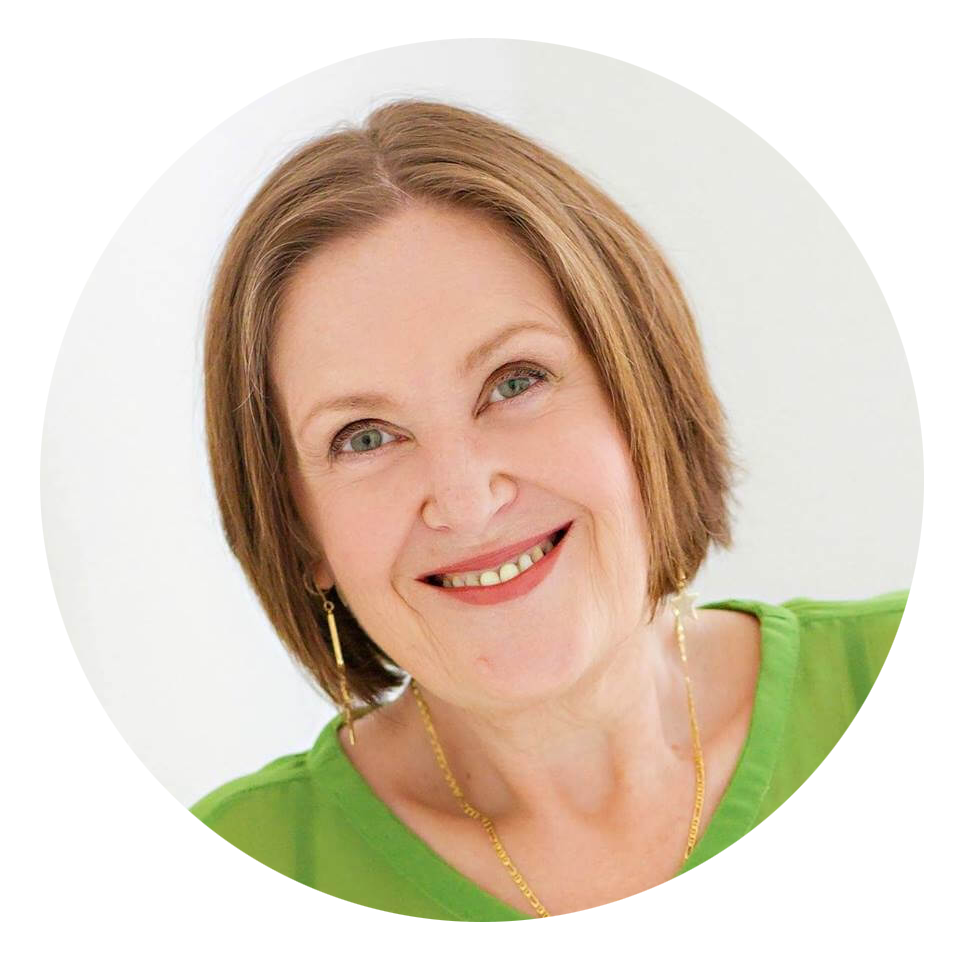 Kerry Jeffery (B.A.) is a qualified Clinical Hypnotherapist, Counselor, and Life Coach, living well with Hashimoto’s Thyroiditis, Celiac Disease and Antiphospholipid Syndrome in Melbourne, Australia. She is the author of “Moving through the Grief of Chronic Illness: A 9 phase model from anxiety to resilience” to help people understand the many complex emotions that come with becoming chronically ill. Kerry works with people all over the world, helping them heal the emotional and psychological side of chronic illness. She specializes in safely removing past and present trauma, guilt, anxiety and all of the effects chronic illness can have on your relationships. Kerry is also an expert at overcoming the effects of toxic relationships and dealing with toxic family or parents.
Kerry Jeffery (B.A.) is a qualified Clinical Hypnotherapist, Counselor, and Life Coach, living well with Hashimoto’s Thyroiditis, Celiac Disease and Antiphospholipid Syndrome in Melbourne, Australia. She is the author of “Moving through the Grief of Chronic Illness: A 9 phase model from anxiety to resilience” to help people understand the many complex emotions that come with becoming chronically ill. Kerry works with people all over the world, helping them heal the emotional and psychological side of chronic illness. She specializes in safely removing past and present trauma, guilt, anxiety and all of the effects chronic illness can have on your relationships. Kerry is also an expert at overcoming the effects of toxic relationships and dealing with toxic family or parents.
Kerry works primarily on Skype and offers a free 20-minute Discovery Session on her website: www.emotionalautoimmunity.com
One of things that chronic illness is really good at is creating lots of grief and guilt. It can feel like you have lost the person who you once were. The capable, active, energetic and independent person who used to be able to get things done, stay out late, burn the candle at both ends and bounce back after a good nights sleep and eat whatever they wanted. Becoming chronically ill is a life-changing event that affects every single area of your life, and the worst impact it can have is on your relationship with your partner.
 The guilt can start in simple ways. You start feeling guilty because you can no longer do the things that you used to do for yourself or your partner or your children, so you find yourself apologizing all the time.
The guilt can start in simple ways. You start feeling guilty because you can no longer do the things that you used to do for yourself or your partner or your children, so you find yourself apologizing all the time.
I’m sorry that you have to help me.
I’m sorry that I can’t get things done.
I’m sorry that I am letting you down.
I’m sorry that I am always sick.
Then gradually, over time, the way that you think about your partner can begin to change. Somewhere along the way, as your chronic illness takes more of a toll on you and your life, your partner changes from being your friend, lover, and co-parent, to becoming your caretaker, provider or manager of your health and medical appointments. Even worse, they can become someone who doesn’t seem to understand or make allowances for the many ways having chronic illness has changed your life and expect you to carry on as normal. However, there is no more normal and everything feels different now. The lens through which you view yourself and your relationship grows increasingly dark and negative as the guilt really begins to set in. You feel like you can no longer do your share around the house because you feel so sick and exhausted all the time, so you can feel like everyone is judging you as being lazy or disorganized.
So you feel guilty. If you are a parent, you can feel like you are ruining your children’s lives because all they see is a parent who is constantly sick. You feel guilty about what this is doing to them and how it will affect their future. If you need to make dietary changes, like switching to AIP to help reduce your flares and create some healing, you can feel that you are depriving your partner and family of all of the foods that they love and enjoy, so you feel guilty for taking that away from them. You can’t stay out late anymore or socialize because you are exhausted or in pain or so brain fogged that you can’t even think, so you have to keep saying no to all of the social invitations and events. You feel guilty because you feel like your friends will think that you no longer care or want to see them and that your partner is missing out because of you.
Pain, disability and lack of energy means that your sex life can begin to suffer. Chronic illness can change so much about you that you can look in the mirror and no longer even recognize yourself. You start to wonder how your partner could ever think you are attractive, let alone sexy and your self-confidence goes out the window. Even if you do have the time and energy for intimacy, the anxiety and self-consciousness gets in the way, so the guilt gets even bigger. There can come a point where the guilt becomes so bad that you start feeling sorry for your partner, because you no longer feel like the person that they fell in love with.
You can even find yourself starting to believe that your partner would be better off without you. In fact, you may even feel that you need to offer them an “out” from the relationship, because somewhere along the way, you feel like you have become someone who is just dragging them down, spoiling their enjoyment of life and holding them back from the happiness that they deserve.
Save 70% Off the AIP Lecture Series!
Learn everything you need to know about the Autoimmune Protocol to regain your health!
I am loving this AIP course and all the information I am receiving. The amount of work you have put into this is amazing and greatly, GREATLY, appreciated. Thank you so much. Taking this course gives me the knowledge I need to understand why my body is doing what it is doing and reinforces my determination to continue along this dietary path to heal it. Invaluable!
Carmen Maier
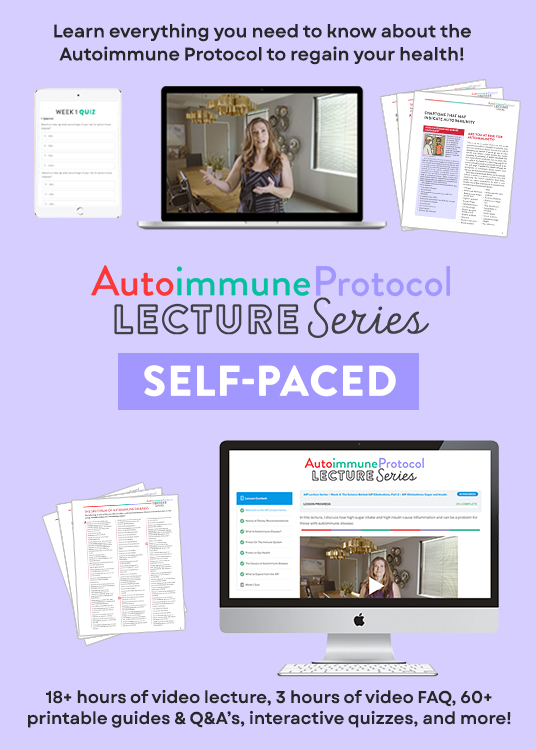
 You feel like you have become a burden to them.
You feel like you have become a burden to them.
The more guilt you feel, the more you begin to withdraw from your partner, from your children and from your life. Guilt changes everything and it can poison everything that you care about. But here is the thing about guilt: Guilt is the great deceiver. It whispers in your ear, trying to make you believe that all of your worst fears and doubts are coming true and if you let it, guilt can ruin your relationships. Guilt can lead you to a dark and dismal place where you are not able to make the right choices for yourself or for your relationship because you feel like a burden.
Feeling like a burden stops you from really hearing what your partner is actually saying to you. Feeling like a burden sinks you further down into depression, apathy and hopelessness. Most of all, feeling like a burden stops you from actively creating solutions and adapting to the changes that chronic illness has brought into your life. However, there is one big truth about feeling like a burden that you really need to hear and accept and understand.
You can only feel like a burden if you allow yourself to believe it.
The truth is that you are still the same amazing and wonderful person that your partner first fell in love with. You are still as lovable, worthy, deserving and enough as you have ever been
The only difference is, that now you are a person going through a life-changing crisis that everyone in your life will need to adapt to and live with as well.
 If you are in a relationship, chronic illness is something that you both need to deal with, just like any other crisis or challenge in your relationship so far. Don’t believe me? Let’s flip the situation and turn it around. If this was happening to your partner instead of you, what would you do? Would you see your partner as a burden or would you want to face the challenges as a couple and find ways to adapt and change and face it together? Would you want to blame your partner and abandon them or would you want to find ways to support them and make your lives together as happy and fulfilling as you can? The truth is that chronic illness is one of those devastating and challenging events that can happen to anyone at any time through no fault of their own.
If you are in a relationship, chronic illness is something that you both need to deal with, just like any other crisis or challenge in your relationship so far. Don’t believe me? Let’s flip the situation and turn it around. If this was happening to your partner instead of you, what would you do? Would you see your partner as a burden or would you want to face the challenges as a couple and find ways to adapt and change and face it together? Would you want to blame your partner and abandon them or would you want to find ways to support them and make your lives together as happy and fulfilling as you can? The truth is that chronic illness is one of those devastating and challenging events that can happen to anyone at any time through no fault of their own.
Chronic illness is not something you deserve or created or brought upon yourself because of something you may have done in the past. We still don’t know exactly what causes chronic illness, but what we do know is, that as individuals, we have enormous power and influence to change our lives and create the best possible health and happiness we can.
So how do you stop feeling like a burden?
Begin by understanding that continuous guilt is a useless and crippling emotion. Guilt is meant to be a powerful reminder of when we have stepped outside our own moral compass and done something that we feel was wrong, that we need to own and apologize for. It helps us learn to take responsibility, be honest and live up to our own standard of what being a good person means.
Getting chronic illness is nothing to feel guilty about. It is something that can happen to anyone at any time and it is not your fault. So start really listening to what your partner is telling you without letting guilt whisper in your ear. If your partner is telling you that you will both work it out and find a way to manage this, believe them. Go back to what you would do and how you would feel if the situation was reversed and your loved one was chronically ill and let that ground you in what is true. Understand that what you are going through is for now, not forever.
Feeling like a burden can fool you into believing that things are going to be this way for the rest of your life and none of us can see the future. We can only do the best that we can with the present moment that we have right now and the only sure and certain thing in life is change. As you begin to work through all of the complex emotions of becoming chronically ill, you will begin to adapt and feel more in control. Remind yourself of all of the difficult things that you have already overcome.
When you stop believing in the things that guilt is telling you, that resilience and strength and determination will begin to come back. Talk to your partner openly and honestly about how you are feeling. Tell them that you feel that you have become a burden. Tell them that you feel like you are dragging them down and how worried you are about your future together. Having an open, honest and vulnerable conversation with your partner can create a wonderful opportunity for more connection, trust, love and commitment between you both and make your relationship even stronger.
Right about now, I know exactly what you are going to say: but what if they tell me that I am a burden? What if my fears are true?
 As hard and as heartbreaking as this can be to hear, at least you will know exactly where you stand and what you can expect from them. If this does happen, chances are that there have been issues in your relationship that were already there, long before the chronic illness arrived. The chronic illness has just made them so clear that they can no longer be ignored or denied. Continuing to feel like a burden and not talking about it, will only continue to keep you stuck in guilt, anxiety and stress, all of which is enough to trigger your autoimmune conditions and make you feel even worse.
As hard and as heartbreaking as this can be to hear, at least you will know exactly where you stand and what you can expect from them. If this does happen, chances are that there have been issues in your relationship that were already there, long before the chronic illness arrived. The chronic illness has just made them so clear that they can no longer be ignored or denied. Continuing to feel like a burden and not talking about it, will only continue to keep you stuck in guilt, anxiety and stress, all of which is enough to trigger your autoimmune conditions and make you feel even worse.
What I have seen in so many cases with the couples that I work with, is that marriages and relationships where one person has chronic illness can grow even stronger, closer and more loving than before. It can create new opportunities for you to both see what is really important in your relationship and that can only happen once you choose to let go of the guilt and stop believing that you are a burden. Feeling like a burden will deprive you of all of the joy, comfort, love, reassurance and connection that is available to you right now.
Guilt is a normal phase of the grieving process and it can be overcome if you are willing to be honest, vulnerable and have the tough conversations. You are only a burden if you believe yourself to be. Don’t let the guilt tell you otherwise.
Would you like to work with Kerry? She offers a free 20-minute Discovery Session on her website: www.emotionalautoimmunity.com

